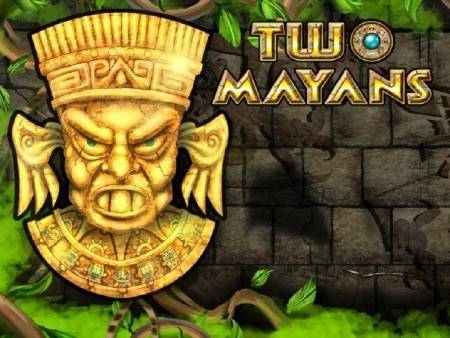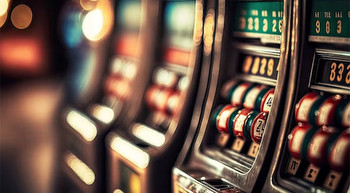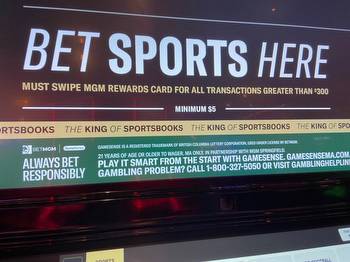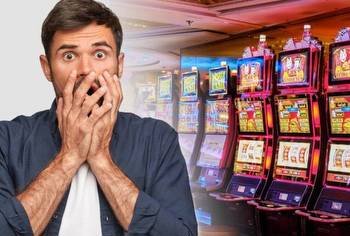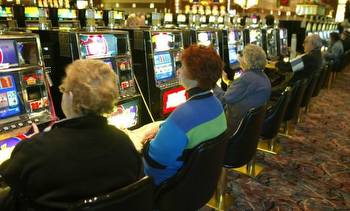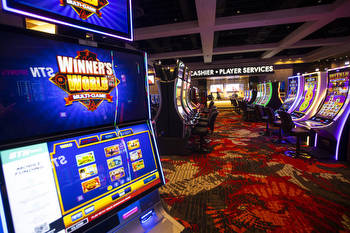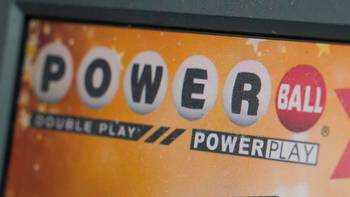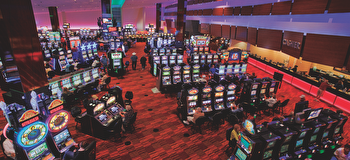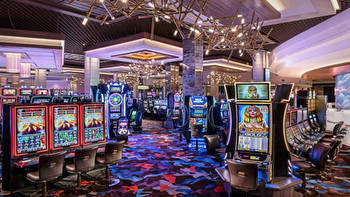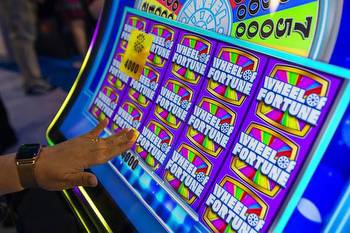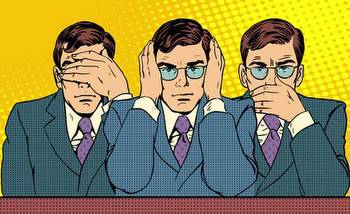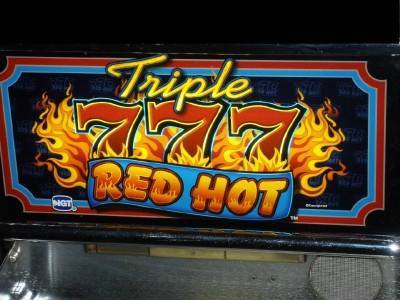Can a Casino Refuse to Pay You?

Casinos operate under a myriad of rules from both state and federal governments. They are one of the most regulated businesses in the US. Sometimes, when all those regulations aren’t met, the casino may refuse to pay you, at least momentarily.
In many cases, the casino usually just needs more information, like a current ID, to pay you. Or perhaps your name is on a state watch list of people that the state believes owes it money and the casino will either hold the money or turn it over to the state while you get the matter straightened out.
More rarely, there will be questions about whether the slot or table games winnings are legitimate. Disputes like these are often moderated by the individual state or tribes’ gaming commission. And sometimes, the casino will just be unable to pay you, for instance, if you’re underage or have filled out self-exclusion paperwork that prohibits you from even being in the casino.
Keep reading for the reasons why a casino might refuse to payout.
You must be of legal age in the state where you play. Just because you can gamble at 18 back home doesn’t mean the casino you are playing in now will have those same age requirements.
I still remember a 19-year-old who hit the Wheel of Fortune progressive at Caesar’s in the late 1980s on the Las Vegas strip. Instead of going home with a million dollars, he went home empty-handed. And while the casino received a lot of bad publicity even in the international press, and even though it was a valid jackpot, Nevada law wouldn’t allow them to pay.
We’ve probably all forgotten to renew our IDs at least once. But Federal law will require a valid ID on slot Jackpots of more than $1200 and table game cash-outs of more than $10,000. In fact, in most states, it’s illegal to even be on the casino floor without a valid ID due to casinos wishing to keep out those on exclusion lists.
If you’ve left your identification at home or if you forgot to renew and your id is expired, even by as much as one minute past midnight on the expiry day, the casino will place your money on hold at the cage and be unable to pay you until you present valid identification.
This is not, as many players make it out to be, about not knowing who you are but about the unambiguous letter of the law. You may have been at that casino every day for a year, and you may have had 100 hand pays leading up to this one, but without a valid unexpired ID, the casino cannot pay you.
The official Gambling Intercept program is a Federal/Tribal/State partnership that collects gambling winnings from those on a list that owe child support. More than a dozen states participate, as well as numerous tribal casinos.
This often piggybacks on state laws that also intercept winnings if you owe income taxes and, in some states, various other fees or fines. The program is wildly successful, diverting millions in states that employ it from the pockets of winning gamblers to the various revenue departments that purport to pay it out to those who are owed support.
As might be expected of government lists with millions of names, this program has its problems. Your name is run through the database once you hit a $1200 jackpot or its table game equivalent.
But these databases often need to be updated or corrected. This can be infuriating if you’ve recently paid off what you owed, only to find the state or federal government has seized your winnings anyway.
It’s important to understand that this is not the casino’s doing. Once again, they operate under a set of rules and laws that they must follow. And they certainly won’t be able to bend those laws no matter what paperwork or documents you may have on hand to prove your case. These disputes will need to be settled with the State or Tribe, not the casino.
Nevada does not participate in the Gambling Intercept Program, at least as of 2023. Casinos there have argued that onerous restrictions on a state with so many gaming licenses will be a burden to implement. In particular, they’ve called on the state to demonstrate that it can build a secure and error-free database before requiring its use.
The self-exclusion list is another state-sponsored program to help alleviate some of the ills that come with legal casinos. It’s simply a way for people needing help staying out of casinos to be placed on a list and not allowed in.
Each state handles them a little differently. But you will generally have the option to place yourself on there for a shorter period, say one year or perhaps five years, or you can ask the state or, in some cases, the Tribe to permanently bar you.
This is usually a last-ditch effort by problem gamblers to have the casinos help these at-risk players to help themselves. But it does have legal repercussions and teeth. First, if you’re found inside a casino, you will be trespassed and, in future incidents, maybe even arrested. Obviously, if you hit a jackpot while on the exclusion list, you will not be paid, and the state will take your winnings.
But a second, less obvious, outcome is that many multijurisdictional casino companies may bar you from all their properties. If you’re on the exclusion list with an MGM property in Massachusetts, it is unlikely that you will be allowed to play at an MGM property in Las Vegas. It may not become evident until you have already hit a taxable event, thus stopping the casino from paying you.
Generally, however, the casino will place a note on your account at all affected properties, so if you attempt to use your player’s card, it should become clear whether you’ve been banned or not. If you are on an exclusion list in one state and have doubts, contacting the casino you will be playing at in the other state is probably best to alleviate any concerns.
Sometimes slot machines decide to do their own thing and can show a jackpot or a large number of credits that simply never happened. The stated win or jackpot will often far exceed the top prize on that slot machine.
This is usually what the slot community calls a display error. That means it’s telling you on the screen that you’ve won something you haven’t. One of the most common errors seen multiple times over the years is the $42,949,672.96 win.
A line of code that probably has been used over and over in different types of machines can, under the right conditions, trigger a “win” of 2 to the 32 power, which is 42,949,67,296. This error can look slightly different depending on the denomination you’re playing.
But if you haven’t seen any of the jackpot symbols or the top jackpot on your machine is just a few thousand dollars and your machine is trying to tell you that you suddenly have forty-two million credits, you should probably be prepared for the casino not to be willing to pay you.
Some of the older slots in casinos still use electro-mechanical reels. The reels spin, but the computer tells them where to stop. Occasionally as with most things mechanical, they don’t do what they’re supposed to.
Sometimes this is just old-fashioned wear and tear; other times, it can be something as silly as the slot repair person not putting the reels back in the correct order, but if your reels appear to have landed a jackpot, but your machine isn’t registering it, or vice versa be prepared for the possibility that this will be a malfunction that won’t be paid.
While obviously upsetting, courts around the country have ruled over and over that “malfunctions void all play.” So, while hiring a lawyer may sound like an option, it will probably fail to get your money back.
The Iowa Supreme Court even went so far as to rule that any indications on the machine that you were due some sum was just a “gratuitous promise” and that failure to pay an amount displayed that was shown to be incorrect was not, therefore, a breach of contract. Which, sadly, sums up case law on this topic.
Sometimes when people realize they’ve left their ID at home or perhaps they’ve hit a large jackpot and just now thought about the child support they should have been paying for the past twelve years, they might be tempted to have someone else claim their jackpot.
Do not do this. It’s a crime; in many states, it’s a felony. Having a hard-earned jackpot garnished is bad, but it’s not worth going to jail. All jackpots over $1200 will be verified by surveillance. There is zero percent chance that you will get away with it.
Casinos want to pay you. They are legally required to pay you, and it’s in their best interest to avoid bad publicity. But they will follow the law exactly. Most of the reasons why a casino may not be able to pay you are easily remedied.
Have a proper, valid ID showing you are of age for that venue, be aware of any garnishments or levies that might have been filed against you, and be mindful that if you are on a self-exclusion list in one state that it may follow you to other jurisdictions.
These steps will remove most of the reasons why a casino may not be able to pay you, and in the rare instance where a machine has gone rogue, it’s best to think of that “win” as more of a gratuitous promise.







